Presented by the editors of The European Business Review
This article marks the final installment in our series of five articles to be published in our survey report for our recent survey, “Navigating Executive Education Preferences and Needs in Contemporary Leadership.” We explore the impact of EdTech on executive education by examining the trends, challenges, and solutions it brings to the table. Building on insights from previous reports, we’ll delve into how EdTech platforms are disrupting traditional models and redefining executive learning.
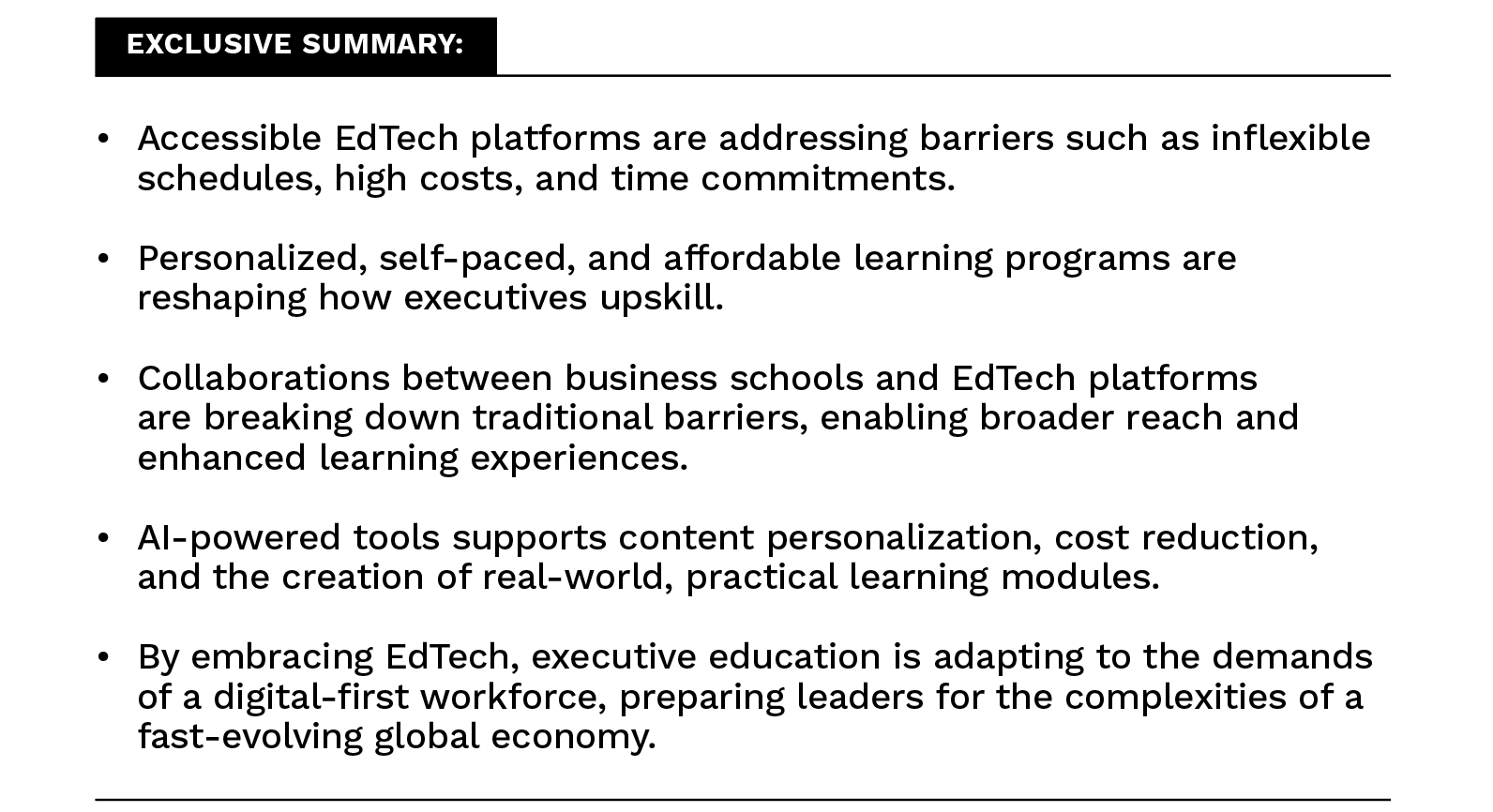
I. Introduction
The evolution of education technology (EdTech) is reshaping executive education in ways that were unimaginable just a few years ago. EdTech is not only enabling business schools to reach a broader audience but is also making learning more flexible, accessible, and adaptive to the ever-evolving demands of the global workforce. Executive education, once limited by location, high costs, and rigid structures, is now moving toward more inclusive, scalable, and efficient delivery methods through digital solutions.
II. The Role of Education Technology in Executive Education
Shifting Traditional Approaches
EdTech platforms have disrupted traditional education models, allowing executives to pursue personalized, on-demand learning that fits around their busy schedules. Our survey respondents cited several barriers that discourage enrollment in executive education programs: lack of flexibility in program schedules (60.9%), high costs (59%), and significant time commitments (55.8%). Other concerns included limited relevance to current roles (33.4%), limited course options (27.4%), and an unclear return on investment (27.4%).
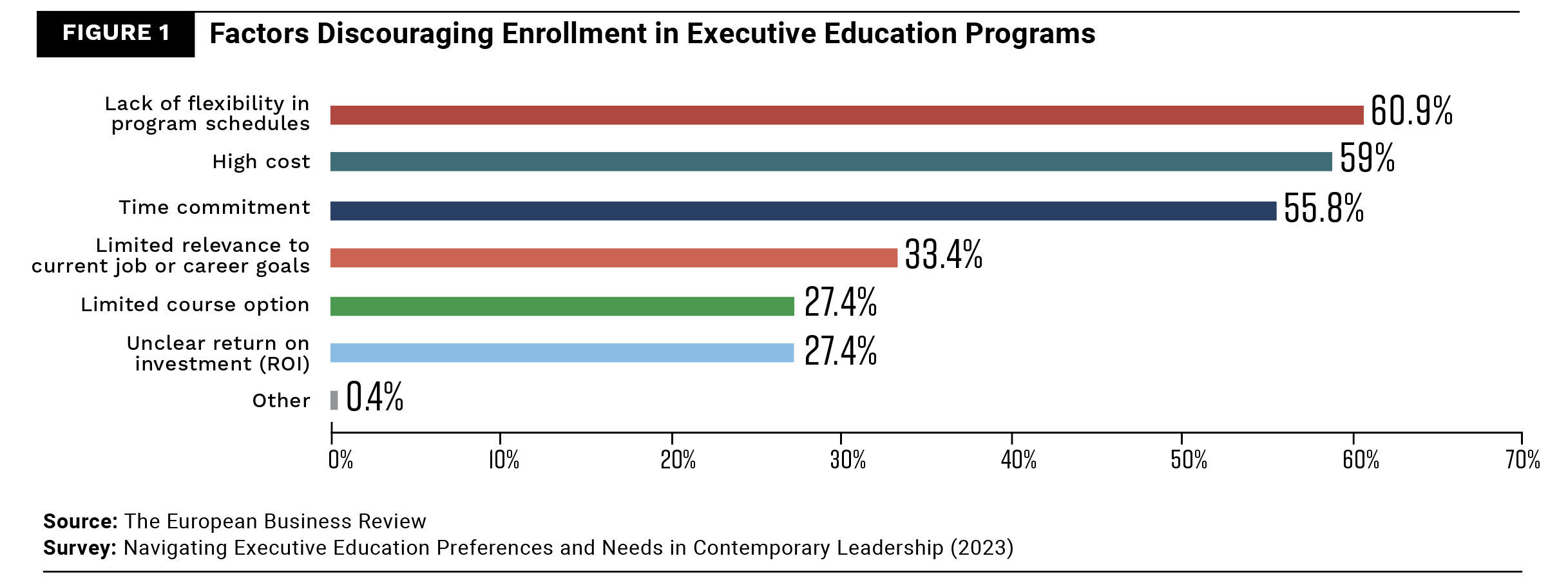
These insights underscore the importance of EdTech solutions, which are uniquely positioned to address these challenges. Gary Hardy, CEO of Executive Education Online, notes, “At Executive Education Online, we believe that “real-world” and practical expert education is required. Using online EdTech solutions, there is an opportunity to use video tutorials, leveraging the “YouTube” way of explaining real problem solving with experts sharing their knowledge. We envisage exams moving more towards evaluating the ability to solve real problem scenarios – AI tools we think may help with vetting answers. This is a whole new area to explore.”
EdTech platforms have disrupted traditional education models, allowing executives to pursue personalized, on-demand learning that fits around their busy schedules.
In response to these challenges, EdTech has emerged as a vital resource for executives seeking knowledge on demand, without the constraints of traditional classroom schedules. The accessibility and flexibility of EdTech make it ideal for busy professionals looking to upskill in specific areas, particularly as many traditional executive programs remain prohibitively expensive and time-consuming.
Popularity and Accessibility of Online Platforms
EdTech platforms like Udemy, edX, and Coursera have risen in popularity as they offer a variety of high-quality courses that are affordable and accessible from anywhere in the world. According to our survey, 86.1% of respondents feel that executive education programs benefit significantly from collaborations with these online learning platforms, enhancing the depth and quality of the learning experience. This trend indicates a growing appreciation among executives for the value of diverse, accessible, and flexible online learning options.
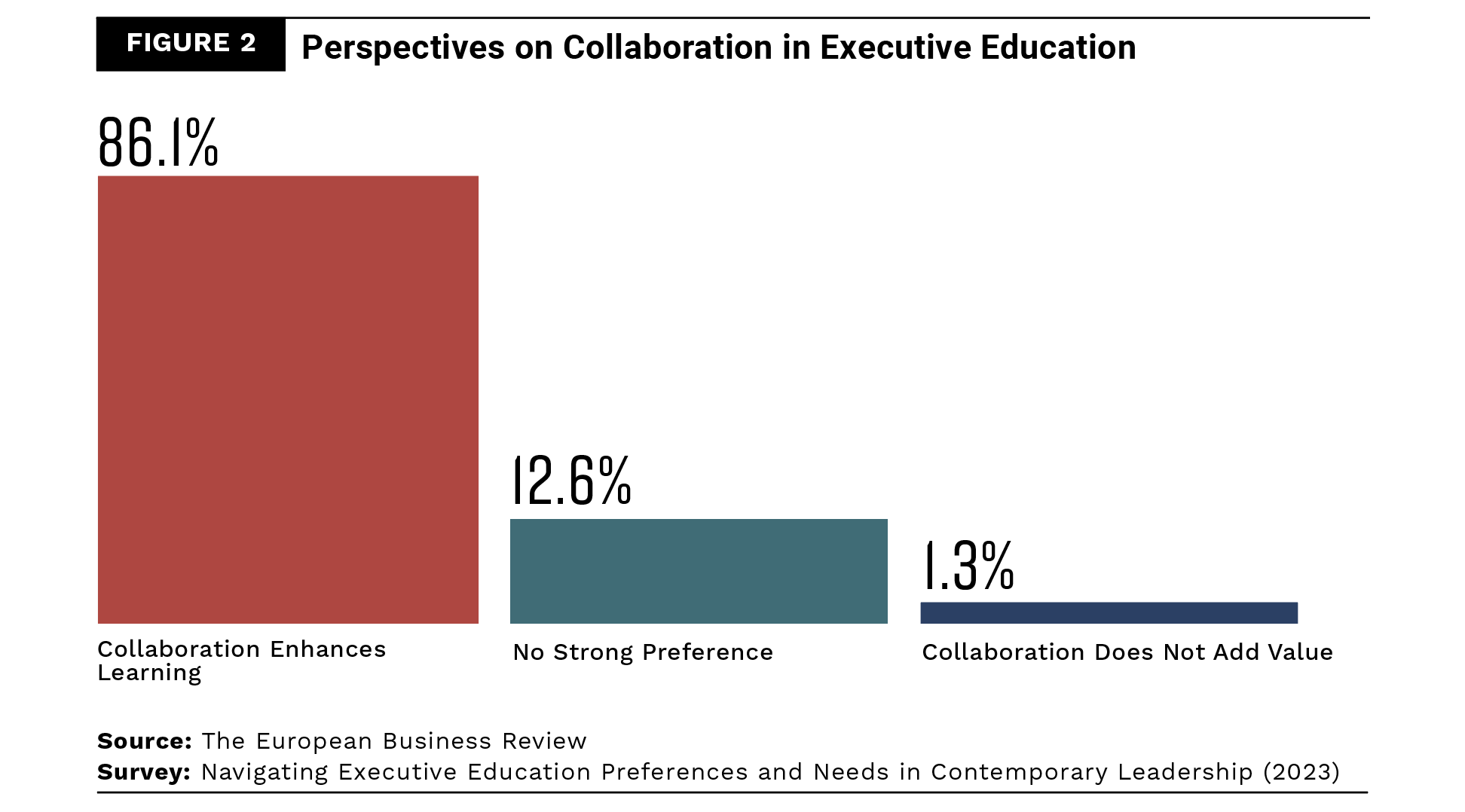
“Concise, self-paced learning programmes created using well-developed rich content, professional videos and virtual access to coaches for support, offer an excellent alternative,” adds Hardy. Such programs enable executives to engage in meaningful learning experiences at their own pace, ensuring that education is both affordable and relevant to their specific career needs.
III. The Impact of Online Platforms on Executive Education Programs
Strategic Collaborations with Online Platforms
Many business schools now see EdTech platforms as essential partners, helping them reach a wider audience and deliver valuable content to executives. Schools leverage these platforms to create programs that are flexible and accessible, breaking down the traditional barriers of time and place. In our survey, we found that 37.6% of respondents occasionally use online platforms for professional development, while 32% use them regularly. This high level of engagement demonstrates the critical role these platforms play in continuous learning for executives.

Hardy explains that real-world applications are central to Executive Education Online’s appeal to executives. “AI tools speed up content creation, lowering the costs, and improving the quality of educational materials by supporting the research and development of the raw material and transforming technical language and jargon into simpler explanations,” he notes. This approach allows executives to move beyond theoretical learning, with modules that address relevant, practical skills they can apply immediately in their work environments. Hardy believes that the future of EdTech lies in adaptive learning and AI-driven content personalization, which can offer tailored learning paths that focus on specific skills essential to each learner.
Benefits of EdTech for Business Schools
EdTech is also transforming the way business schools operate, offering benefits beyond cost savings and expanded reach. Schools can now offer up-to-date, relevant content that aligns with current industry demands and technological advancements. The traditional reliance on fixed curriculums is shifting to a more dynamic, adaptable approach, allowing schools to continually update and refine their programs to keep pace with a fast-changing world.
The integration of EdTech into executive education represents a paradigm shift, making learning accessible, flexible, and increasingly relevant to today’s global workforce.
EdTech tools like AI-powered content creation provide schools with the capability to create professional-grade courses quickly and affordably. “At Executive Education Online, we have used AI tools for all of these opportunities, enabling us to produce courses at a faster pace and higher quality and at a lower cost for our users,” Hardy explains. This strategy allows business schools to remain relevant and responsive to learner needs, even as those needs continue to evolve. By harnessing these digital tools, institutions can meet the demands of global learners seeking to remain competitive in their fields.
IV. Conclusion
The integration of EdTech into executive education represents a paradigm shift, making learning accessible, flexible, and increasingly relevant to today’s global workforce. As our survey findings indicate, EdTech is uniquely positioned to address the barriers that have traditionally limited enrollment, such as inflexible schedules, high costs, and limited program relevance. Through partnerships with platforms like Udemy, edX, and Coursera, business schools and education providers can deliver tailored, on-demand content that is accessible to professionals worldwide.
As EdTech continues to evolve, so will the possibilities for executive education, fostering a new generation of leaders equipped to navigate and thrive in an increasingly complex, digital-first world.





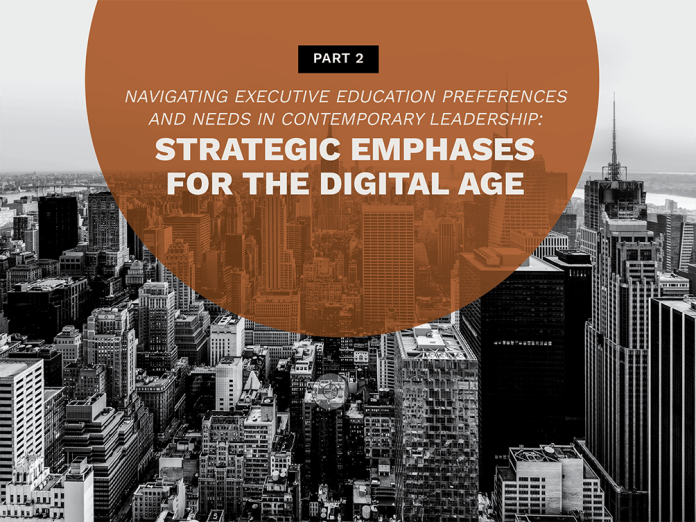

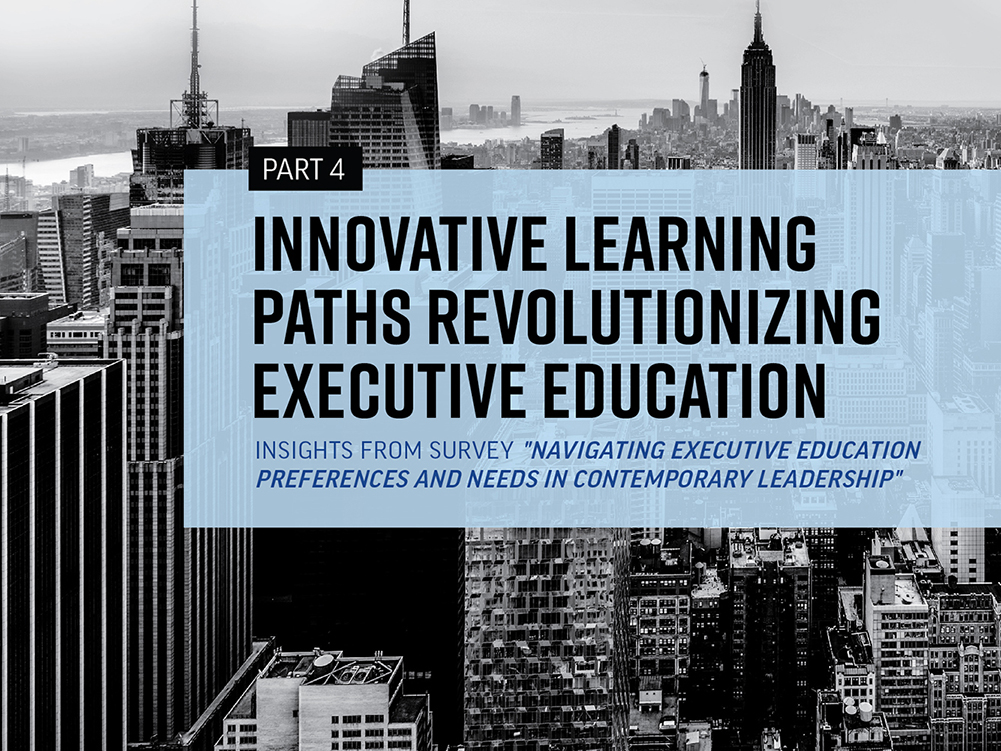 Read the fourth installment here:
Read the fourth installment here:





